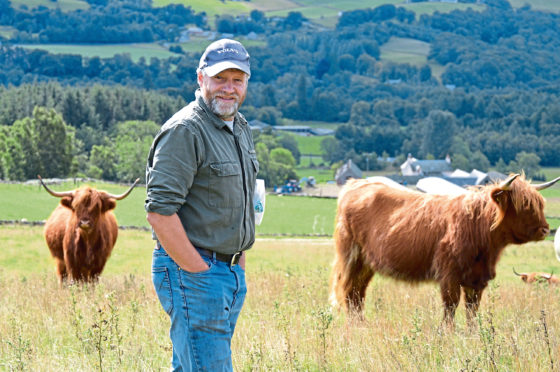NFU Scotland vice-president Martin Kennedy has cut his grassland fertiliser bill by £30 a tonne this year by not applying any phosphate to his grazing or silage pastures.
The move is in response to early results gained during the first year of a five-year soil testing programme on his Highland Perthshire farm, during which he will soil-test every field.
Based on the findings that have emerged so far, coupled with the use of GPS technology, he is starting to target nutrients and fertiliser to where they are most needed.
Describing the benefits of his first-year tests as “stark”, Mr Kennedy said not only is soil health on his farm improving, but he is also saving money on fertiliser.
“I would urge all those in the livestock and grassland sectors who don’t presently use this technology to take a leaf out of the arable sector’s book and treat grass with the attention it deserves,” he said in a blog on the NFU Scotland website.
“After all, from a livestock perspective, grassland is every bit as important.”
Mr Kennedy also revealed that it looked at times as though his spreader was “completely knackered”.
This was because it was spreading lime heavily on some parts of the farm and then lightly on others.
“But that is thanks to computer and GPS technology targeting the lime to where it is actually required, based on our soil-testing results,” he said.
Acknowledging Scotland’s excellent record on soil health, especially in storing carbon as an important element in tackling climate change, he said the country farmers could do even more to boost soil health.
He also had a message for Scottish and UK politicians, however, urging them to recognise the climate change efforts farmers were making, particularly in the arable sector, and to appreciate that unless the right forward policies are put in place, such benefits might not be achieved in the future.
